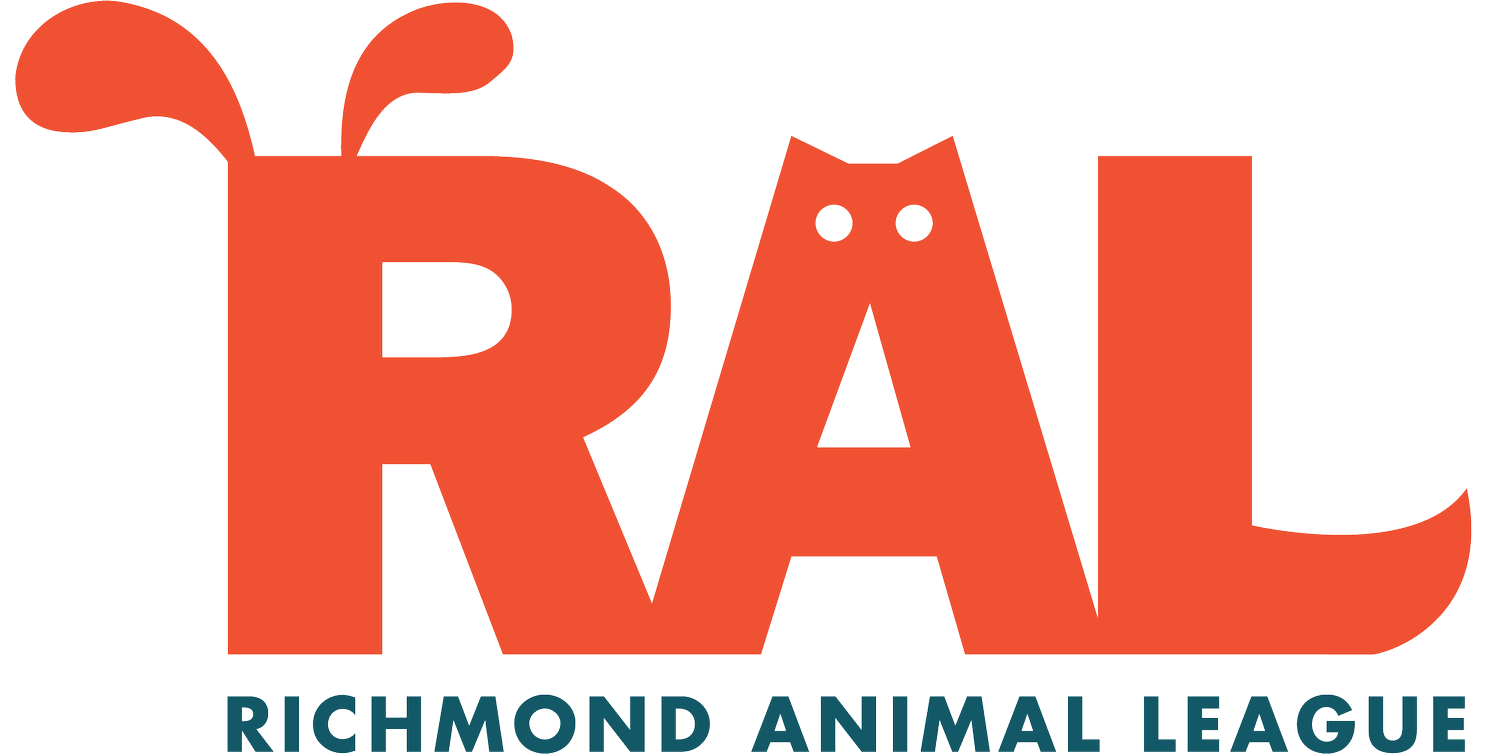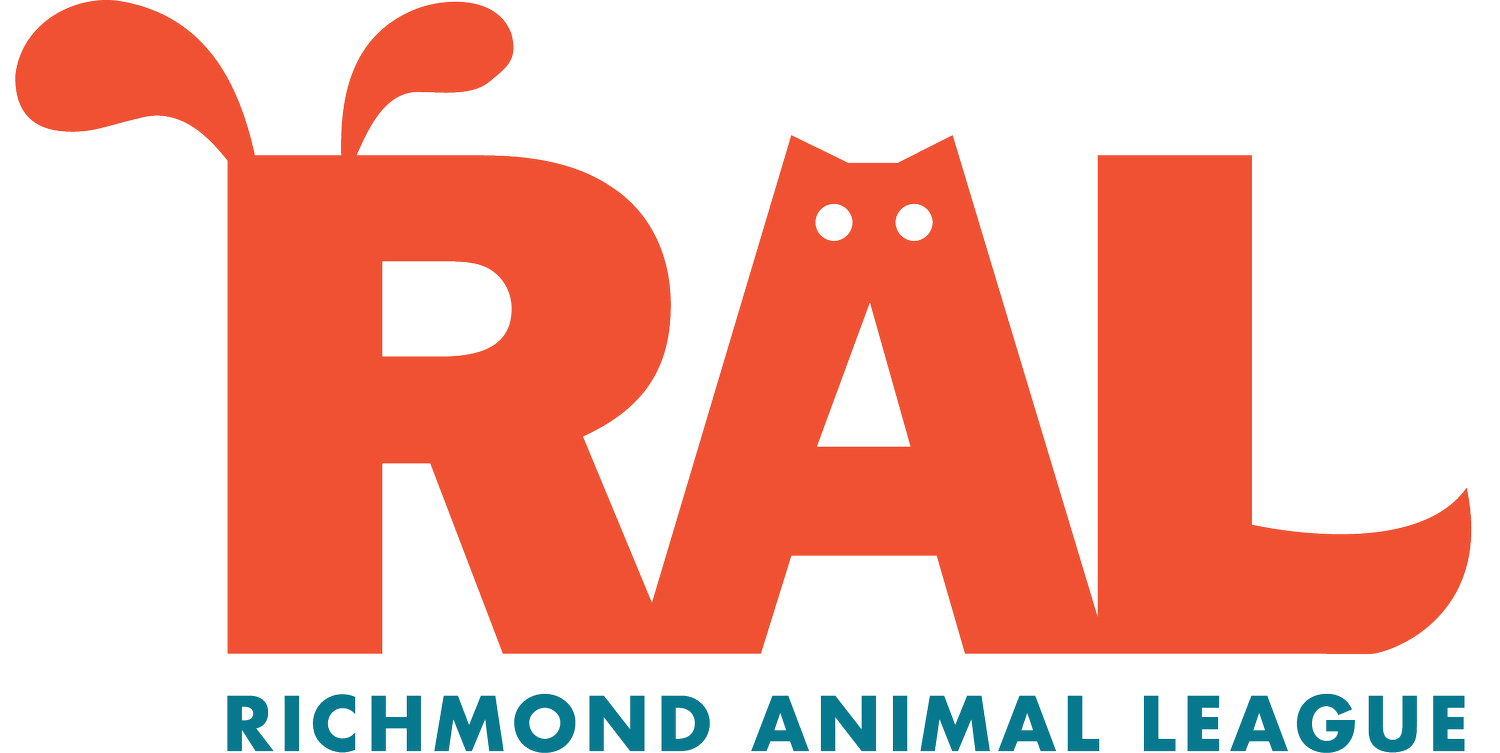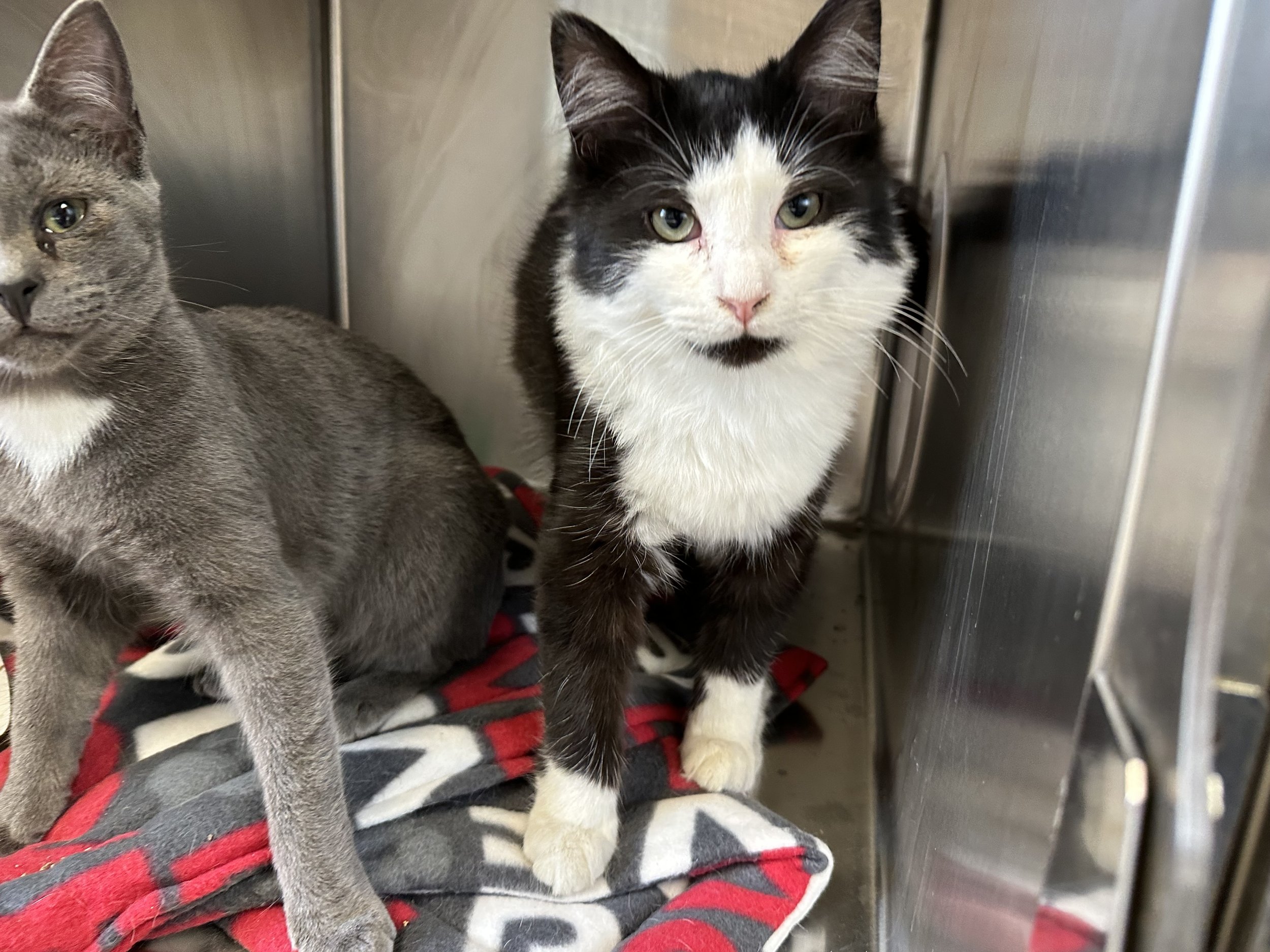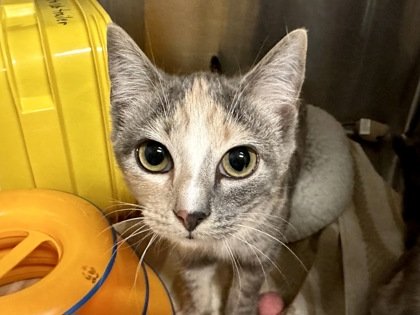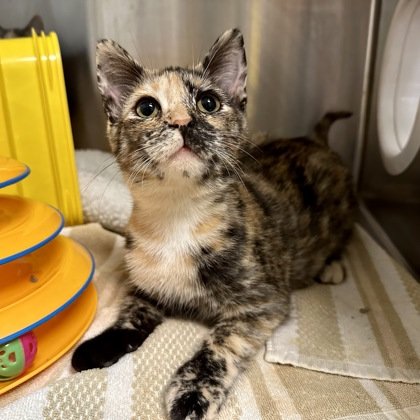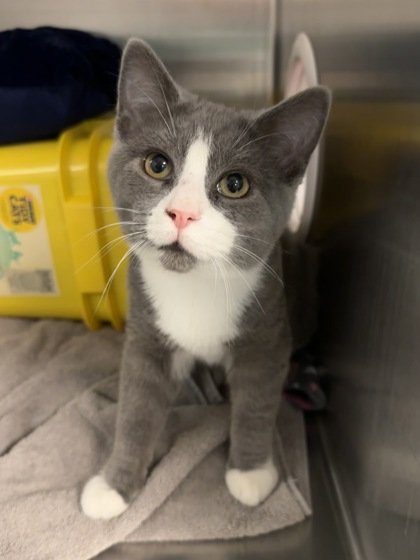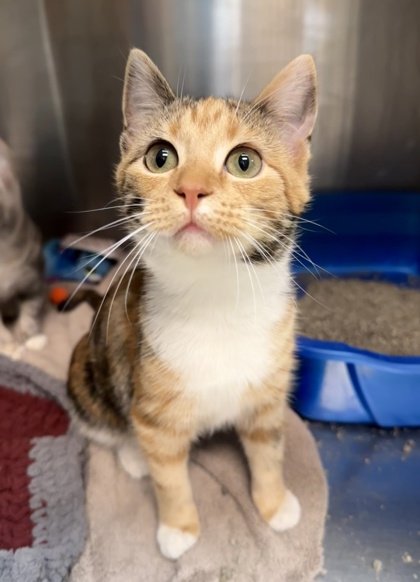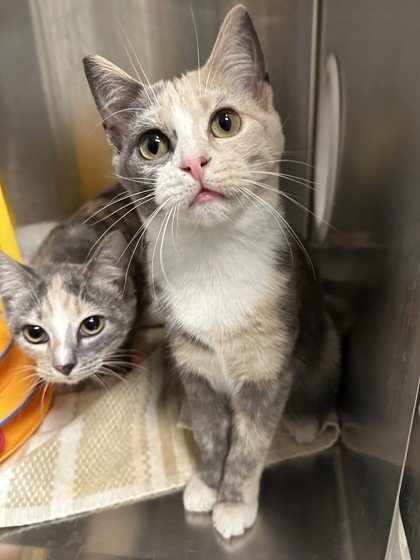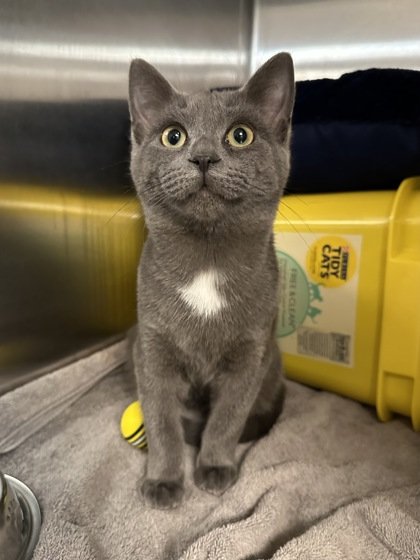Feline Leukemia (FeLV)
FeLV, or Feline Leukemia Virus, is a virus that affects a cat’s immune system. It isn't a form of cancer but a virus that may weaken the immune system and make opportunistic infections and certain types of cancer more likely. Cats with FeLV can live everyday, happy lives—they may just have a shorter life expectancy than FeLV negative cats. Historically, cats with this disease have been euthanized, but many shelters, including RAL, have taken a different stance, allowing FeLV cats to live with dignity and be adopted into loving homes—however, we can only continue to save these cats if people are willing to foster and adopt them.
Is FeLV Contagious?
Only to other cats. For this reason, it is recommended that FeLV+ cats are kept indoors only. They should only cohabitate with other FeLV+ cats as it is spread from cat to cat via prolonged, direct contact with an infected cat’s saliva (sharing food bowls, grooming each other, etc.), urine, blood, and from queen to kittens during pregnancy. Feline leukemia is species-specific, so other animals, such as dogs, cannot contract the virus. The virus is not airborne and dies rapidly in the environment, so you won't have to worry about carrying it on clothes when you leave the house or have friends over.
Are the FeLV+ cats available for adoption sickly?
No. The FeLV+ cats appear and act just as healthy as the other cats we have available for adoption. They do, however, have an increased risk of getting sick. This makes protecting them from stress, feeding them a high-quality diet, and addressing health problems as soon as they arise critical. You wouldn't know a cat had FeLV by just looking at it, and many people have FeLV+ cats in their home and don't even know it because they haven’t gotten them tested.
Litter of 8 Kittens at RAL with FeLV
How long do FeLV+ cats live?
It can be hard to say! There are stages of FeLV that may impact lifespan, and a cat’s viral load may change over time. From available research, progressively infected FeLV+ cats often live between 2-6 years after diagnosis if they were diagnosed as adults and 6 months-2 years after diagnosis if they were diagnosed as kittens. Regressively infected cats are showing normal lifespans in research studies. However, FeLV+ cats can live both shorter and longer lives than the ranges we’ve listed here; every cat is unique. The most important thing to remember is that no matter how much time they have, it will be better because they’re with you in a loving home.
Do FeLV+ cats need special medication or care?
Not while they are healthy. If/when they eventually get sick, they will often get very ill very quickly and may need more care than a normal cat due to their hampered immune system. FeLV cats can be susceptible to terminal (incurable) disease processes such as cancer/lymphoma, terminal anemia, and fluid production within their belly and/or chest (FIP).
Why do some shelters automatically euthanize FeLV+ cats?
There are many myths out there about feline leukemia. As a result, it can be challenging to find people willing to adopt or foster FeLV+ cats. Some organizations feel this is more than they can handle or that they do not have the resources to shelter these cats. That is where shelters like RAL are now stepping in to transfer these cats to our shelter, where we are confident we can find fosters and adopters for them.
FeLV End-of-Life Care Information
Though no one wishes to think about losing the cat they are adopting, we want to ensure that our FeLV adopters feel prepared and supported, given the shortened average lifespan of FeLV+ cats.
When FeLV+ cats reach the end of their lives, it is most commonly a rapid decline where the cat goes from seemingly well to terminal in a matter of days or weeks. Your vet can help you determine if your cat is at end of life, and with testing and consulting, together, you can choose the best course for your cat.
I'm still not sure. Can you give me more information?
Yes!! We would be happy to discuss the FeLV+ cats in our shelter and the virus. If you would like more information, please email adopt@ral.org and let us know you are interested in more information on FeLV+ cats.
